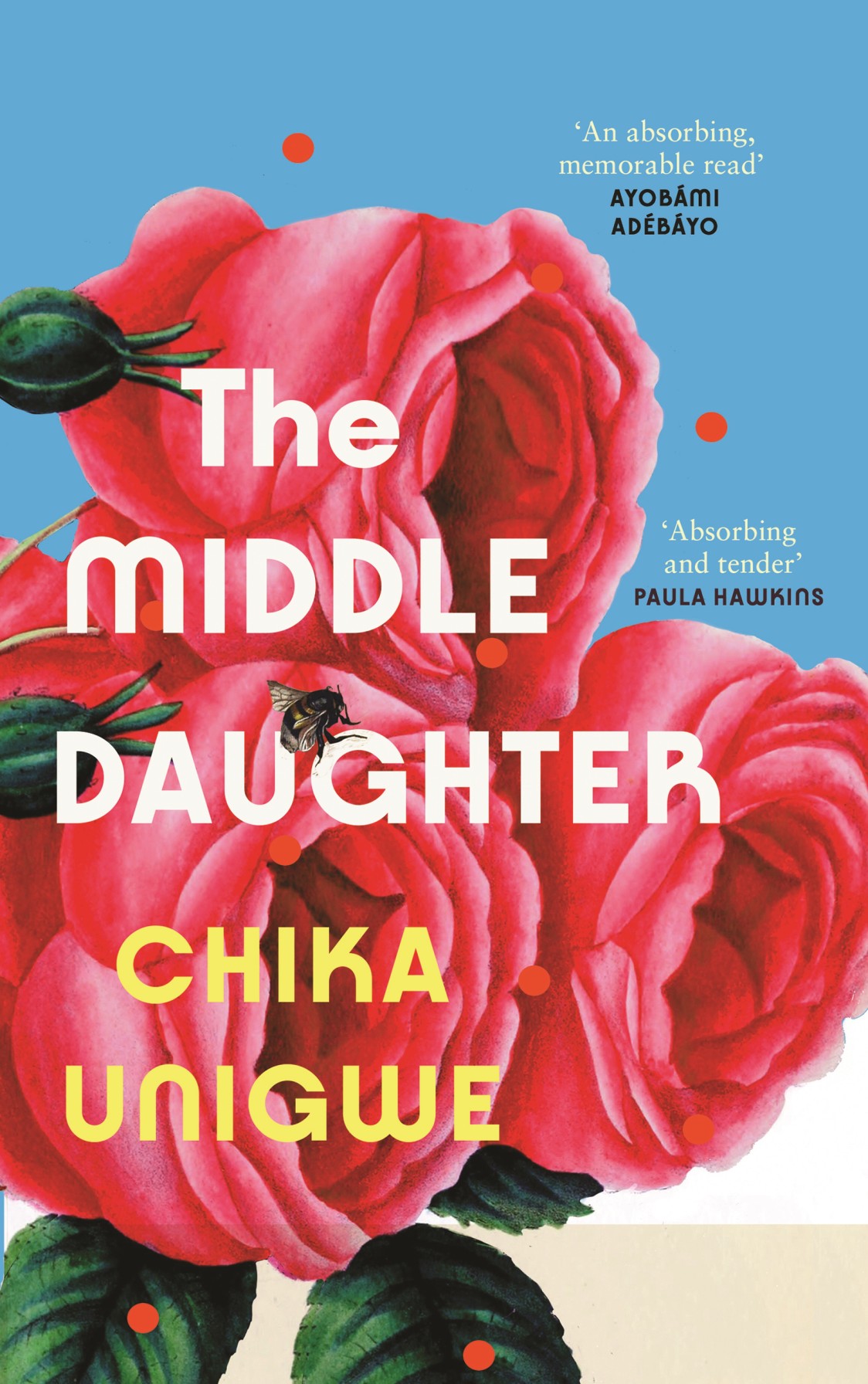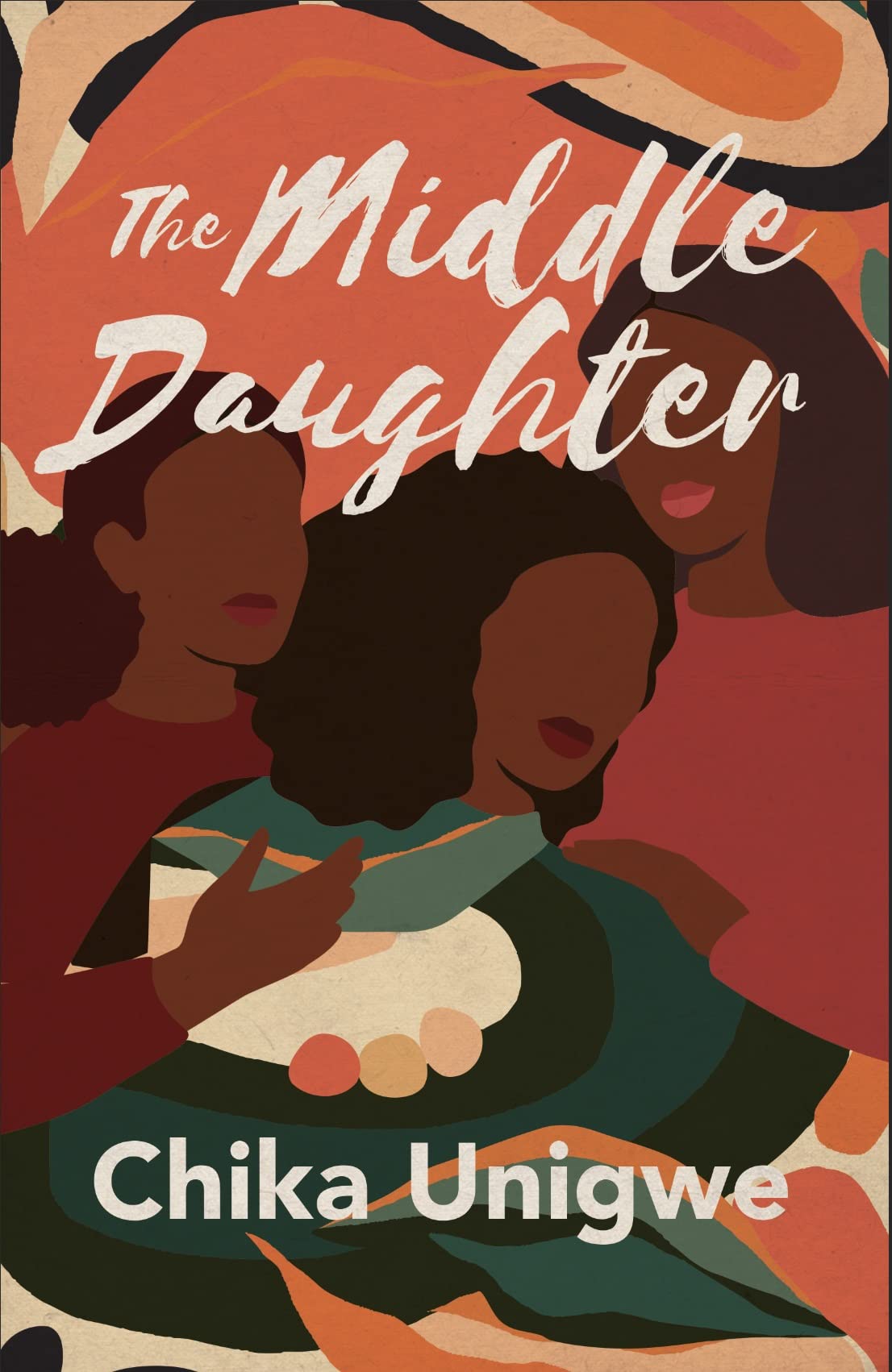At its heart, The Middle Daughter is an exploration of human relationships and connections complicated by grief.
By Evidence Egwuono Adjarho
In literary criticism, it is often argued that what contributes to the holistic outlook of a book, determining whether it gets tagged as a good book or not, is how elements of content (such as the plot and themes) are intricately interwoven with elements of form, so that neither exists in isolation. While it is sometimes possible to overlook one, usually the form, a truly remarkable book ensures that every element, major or minor, serves a purpose. Chika Unigwe’s The Middle Daughter is a reminder of this argument.
The Middle Daughter undertakes a necessary task: it challenges assumptions surrounding the idea of the “black sheep”. It questions the essence of categorisation and labelling, suggesting they are often lazy ways of avoiding uncomfortable truths. It also probes how grief works both as a tool for purging emotion and as a force that molds, controls, and perhaps destroys.
The book is divided into three parts and begins with a short chapter in The Present titled “Udodi, the Chorus”. Reminiscent of the chorus in Hellenistic drama such as Antigone and Oedipus Rex, this voice plays a crucial role in the novel. Structured like a poem and framed within Igbo mythology, it offers a lyrical prelude to the plot. Its final three lines encapsulate the novel’s essence:
And so evil came
And so beauty came
And so life is…

Immediately after this, the main story begins from Nani’s perspective with the opening lines “I fear the man who I call my husband”. We hold on to this knowledge as the story moves to “The Past” although it is not enough to fully grasp the events that follow. Again, Udodi, [as] the Chorus reappears but this time, as a Nigerian student in America. What takes over soon is grief, layered and carefully peeled off as the plot progresses. Nani and her family—her younger sister Ugo, her father Doda, and their mother—learn of Udodi’s death through a call from her roommate
From this point, The Middle Daughter oscillates between flashbacks that fill in the family’s history and glimpses of the future. Each member deals with their grief differently. Ugo and Mother’s coping mechanism is avoidance. They pick up their lives as it was before Udodi’s death and throw themselves into social activities.
Nani, by contrast, withdraws. Her friends’ silence whenever she mentions Udodi isolates her further: “Whenever I mentioned Udodi’s name they went quiet… I had no right to bring death into our midst”. She is left alone, clinging to her father’s presence. When Doda dies two years later, her disillusionment deepens, marking “the beginning of the end”.
Nani’s familial estrangement soon translates to loneliness, making her vulnerable to the one character who upends her life’s trajectory. Ephraim is introduced as a flamboyant preacher described with “dusty shoes… an unfashionable haircut… out of place”, and who substitutes R for L in speech. Despite his awkwardness, Nani confides in him: “I told him things I could not tell anyone else. I told him of Udodi’s death. I told him of Doda’s death exactly a year ago”. Ephraim becomes both the driver of the plot and the agent of its twist.

Although Udodi dies at the start of the novel, she remains present through the Chorus. She serves as an omniscient observer who foreshadows events but cannot alter them. Just before Nani meets Ephraim, Udodi warns:
“I can do nothing but watch as the unravelling begins… and a drought visits her world and drags her into the darkness below”.
Meanwhile Nani’s mother opens a surrogacy clinic after Doda’s death, and this becomes the beginning of the family’s division. Ephraim discovers this first and seizes on this, reframing it as “selling babies”, something he uses to manipulate Nani, who already feels her mother has betrayed her father’s memory.
The Middle Daughter moves fast — perhaps too fast — after Nani is raped by Ephraim after attending a vigil with him, a deliberate act of rebellion against her mother. You shut your eyes momentarily to take in this scene, open them, and the world of the novel has changed completely.
First, Nani discovers she is pregnant. Blink and Nani is married to Ephraim. Blink again, and Nani is raising one child, and another, and another. It does seem like the author was in a haste, much like the reader, to get over this stage of the book, and understandably so. But the consequence of this pacing is that the story becomes wanting in believability.
At times, excessive foreshadowing also undermines suspense, as in the final paragraph of page 65, which prematurely hints at Nani’s decision to leave her family, weakening its eventual impact.

At its heart, The Middle Daughter is an exploration of human relationships and connections complicated by grief. Nani resents her mother for moving on too quickly and despises Ugo for always siding with her. Mother and Ugo, in turn, believe Nani is emotionally unstable because she clings to the past. Yet the novel reveals the nuances of these tensions, showing how love and grief manifest in diverse, often conflicting, ways.
Unigwe’s prose calls to mind Chinua Achebe. She unravels grief with patience, distracts the reader momentarily, and returns to it with full force, never losing her grip on the narrative. Her sentences are economical yet weighty. Her reinvention of English, an Achebean signature, suffuses the text with a distinctly Nigerian texture. Consider, for instance, this line from page 15 I found highly creative: “There would be canopies wearing necklaces of disco lights in the front yard”.
Such inventive imagery captures the cultural rootedness of her storytelling.
It is easy to see why The Middle Daughter has been longlisted for the NLNG Prize. Beyond its engrossing plot, it mesmerizes through style, voice, and cultural authenticity. Chika Unigwe proves herself here not just as a gifted storyteller but as a writer of remarkable craft.
Evidence Egwuono Adjarho is a dynamic and evolving creative with a flair for literature and the arts. She finds joy in reading and writing, and often spends her free time observing the world around her. Her interests span a wide range of artistic expressions, with a particular focus on storytelling in its many forms including photography.




